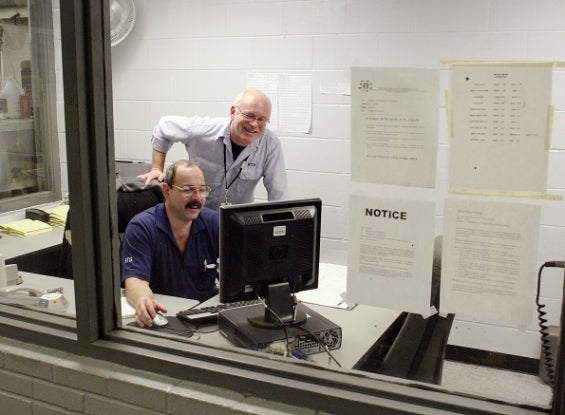Headline News
Teamsters: Internet Is Next Frontier Threatened By Big Business

The development of the Internet is the greatest innovation of the last 20 years. It is a tool that builds global knowledge and has leveled the playing field for people in the development of technology, no matter where they live. It is a mechanism of infinite possibilities that could increasingly help workers do their jobs better or even start their own businesses.
But there is a significant threat on the horizon to those growing dreams of prosperity in the U.S. The Federal Communications Commission (FCC) took a step yesterday towards putting the Internet increasingly in the hands of multi-billion dollar corporations when it opened a proceeding that will consider whether the nation’s largest communications providers like AT&T, Comcast and Verizon can provide faster service to a select number of companies who pay more for the privilege.
At risk, quite frankly, is the future development of the world we live in. If a handful of companies are allowed to control what is the world’s greatest vehicle for innovation, America’s long history of garage inventors who for decades have created the next big thing will be snuffed out.
Luckily, thousands of Americans have already taken the stand in favor of so-called network neutrality, and the head of the FCC seems to be listening. “The potential for there to be some kind of ‘fast lane’ available to only a few has many people concerned,” Commission Chairman Tom Wheeler said. “Personally, I don’t like the idea that the Internet could become divided into ‘haves’ and ‘have nots.’”
But representatives for the nation’s largest broadband operators are not likely to lessen pressure on regulators. In fact, they are more likely to double-down on their efforts in the months ahead. Already, they are moving to stop the FCC from implementing rules on the industry similar to those placed on the telephone network that give consumers additional protections.
The industry has friends in high places willing to carry water for them, like House Energy and Commerce Committee Chairman Fred Upton (R-Mich.) and Rep. Greg Walden (R-Ore.), chairman of the House communications and technology subcommittee. “These rules are a solution in search of a problem,” the lawmakers said in a statement. “Worse still, any attempt to reclassify broadband Internet embarks on a worrisome course for its future.”
The threat of a corporate-controlled Internet, however, is very real. Ultimately, it will lead to a two-tiered system where big business gets quicker access to their websites over mom-and-pop operations. It will also allow the corporate communications giants to raise prices as they gain more and more control of broadband networks due to a reduction in providers.
The good news is all of this is not a done deal yet. The public has until September to comment and needs to be heard at the FCC. Even those who don’t use the Internet need to realize the stakes involved, if not for themselves then their families. The nation’s future depends on it.